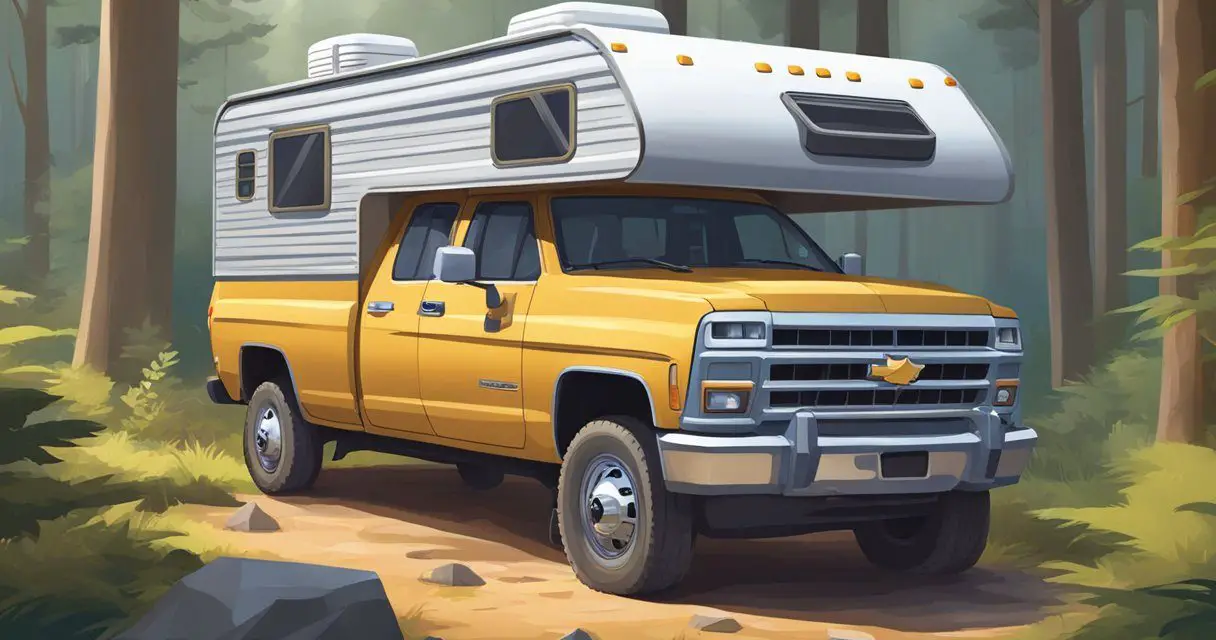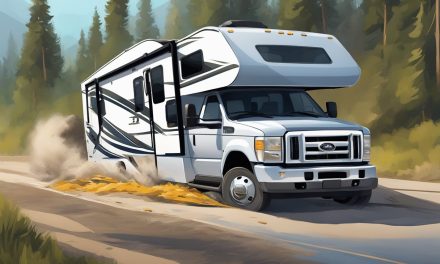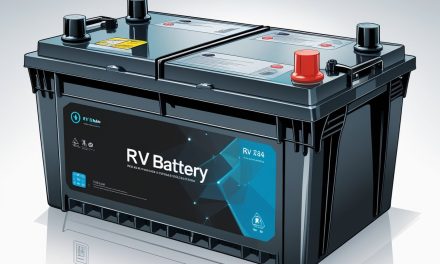Truck campers are one of the most polarizing types of RVs—some people swear by them, while others can’t understand the appeal.
If you’re considering buying one, it’s important to weigh the pros and cons before making a decision. These compact campers offer unique advantages, like affordability and off-road capability, but they also come with drawbacks, such as limited space and a wobbly ride.
To help you decide if a truck camper is right for you, RV technician Jacob, who breaks down the key benefits and downsides in the video below
1. Pro: Truck Campers Are (Relatively) Cheap
Jacob points out that truck campers are “cheaper than most RVs” simply because they’re smaller and don’t require a separate chassis. Unlike motorhomes or fifth wheels, which need their own frame and drivetrain, truck campers are essentially just a living space that sits in your truck bed.
This means manufacturers save on materials and engineering, passing some of those savings to buyers. While prices vary widely (from budget-friendly used models to high-end luxury units), you can often find a decent truck camper for significantly less than a comparably sized travel trailer.
If you’ve ever tried to explain RV prices to a non-camper, their shocked face is priceless. “You paid HOW much for a tiny box on wheels?” Meanwhile, truck camper owners are over here whispering, “Yeah, but mine was only $15K…”
2. Pro: Less Maintenance Than Other RVs
Since truck campers don’t have their own drivetrain, Jacob explains there are “no tires to dry rot, no wheel bearings to fall off, and no oil to change.” The maintenance mostly revolves around the living space—things like plumbing, appliances, and seals—rather than mechanical components.
This can be a huge relief for RVers tired of dealing with trailer brake systems, engine repairs, or suspension issues. That said, you still have to maintain the truck itself, but at least you’re not doubling up on mechanical upkeep.
Fewer breakdowns mean more time for actual camping—unless you count “figuring out how to level your rig on uneven ground” as a mechanical failure.
3. Pro: Upgrade Your Truck Separately
One major perk is that you can swap your truck camper to a different truck if needed. As Jacob says, “If your old truck dies, you can just move the camper to a new one.” This flexibility isn’t possible with motorhomes (where the living space and engine are one unit) and is more complicated with trailers (which may require hitch adjustments).
If you love your camper but your truck starts struggling, you can upgrade the truck without replacing your entire RV setup.
Just don’t accidentally upgrade to a truck so big that your camper looks like a tiny hat on a giant’s head. “Honey, I swear, the camper looked normal-sized in the parking lot!”
4. Pro: Easy to Maneuver
Truck campers handle like the truck they’re mounted on, so you don’t have to deal with the “super long wheelbase and bad turning radius” of a motorhome. This makes them much easier to drive in tight spaces, crowded campgrounds, or narrow forest roads. Unlike towing a trailer, you don’t have to worry about backing challenges or sway—just drive like you normally would (but maybe a little slower).
Finally, an RV that doesn’t require a 10-point turn just to get out of a gas station. Take that, 40-foot Class A owners!
5. Pro: You Can Still Tow a Trailer
Want to bring a boat or ATVs? Jacob notes that many truck camper owners “tow a little trailer behind them,” making it a versatile option for adventure seekers. Since the camper itself isn’t a towable unit, your truck’s towing capacity is still available for hauling extra gear. This is perfect for anglers, off-roaders, or anyone who wants to bring along “toys” without sacrificing living space.
Just remember, the more you tow, the more your truck starts groaning like it’s in a gym leg day meme. “I swear, the manual said we could tow 8,000 pounds!”
6. Pro: No Separate Registration (In Most States)
Jacob reveals that “46 states consider truck campers cargo, not a separate vehicle,” meaning no extra registration fees. Unlike trailers or motorhomes (which often require annual registration and plates), truck campers are treated like any other load in your truck bed. This can save you a couple hundred bucks a year in paperwork and DMV visits.
Finally, a legal loophole that doesn’t involve questionable life choices. “Officer, I swear, this is just a really fancy pile of groceries.”
7. Pro: Off-Road Capability
With a 4×4 truck, your camper becomes an “off-road capable Overlander” without the insane price tag of a custom-built rig. Many truck campers are lightweight enough to handle rough terrain, and since they’re mounted on a truck (rather than a bulky RV chassis), they can go places most RVs can’t. Want to camp deep in the desert or up a mountain trail? A truck camper might be your best bet.
Just try not to roll it—unless you’re going for the “turtle mode” aesthetic. “No, it’s supposed to look like this!”
8. Pro: Flexible Setup Options
Jacob humorously notes that “you can put it on a truck, a boat, or even a trailer,” making it a weirdly adaptable RV. Some owners even remove their campers when not in use, turning their truck back into a daily driver. Others get creative, mounting them on flatbed trailers or even using them as stationary tiny cabins.
If MacGyver owned an RV, it’d definitely be a truck camper. “I turned mine into a floating taco stand. You’re welcome.”
1. Con: High Center of Gravity = Wobbly Ride
The biggest downside? “The RV is really high up,” making it prone to rolling in wind or on uneven terrain. Truck campers sit above the truck bed, raising their center of gravity significantly. This means strong crosswinds can feel terrifying, and off-camber trails require extreme caution. Some owners install sway bars or upgraded suspension to help, but it’s still a trade-off for the compact size.
Driving in strong winds feels less like camping and more like piloting a sailboat. “I didn’t sign up for nautical adventures!”
2. Con: Truck Suspension Isn’t Designed for It
Jacob warns that unless you upgrade your suspension, your truck will handle like “a wobbly shopping cart.” Most stock trucks aren’t built to handle the extra weight and height of a camper, leading to sagging, body roll, and a rough ride. Many owners add airbags, heavy-duty springs, or even custom suspension setups—but that’s an added expense.
Enjoy the pogo-stick effect every time you hit a bump! “Who needs a massage when you have a truck camper?”
3. Con: Very Small Living Space
“Almost any other RV is more comfortable,” Jacob admits. Truck campers are notoriously cramped, with minimal counter space, tiny bathrooms, and sleeping areas that often double as dining tables. If you’re claustrophobic or traveling with more than two people, this might not be the rig for you.
It’s like living in a walk-in closet—but with worse ventilation. “Honey, I can’t put my pants on unless you move the fridge.”
4. Con: Tiny Holding Tanks
Limited space means “very small freshwater and waste tanks,” forcing more frequent refills and dump stops. Many truck campers have freshwater tanks under 30 gallons and black tanks under 20 gallons, meaning you’ll need to plan your water usage carefully. Boondocking for more than a few days can be a challenge.
Nothing says “adventure” like rationing shower time like it’s the apocalypse. “Two minutes max, or we’re drinking our own tears!”
5. Con: Almost No Storage
Jacob sums it up: “Very little cargo storage.” Pack light or prepare for Tetris-level organization skills. Unlike larger RVs with exterior compartments, truck campers force you to get creative with every inch of space. If you’re a gear-heavy camper, this might be a dealbreaker.
If minimalism is your vibe, congratulations—you’ve found your dream RV. “Who needs extra socks when you have ingenuity?”







